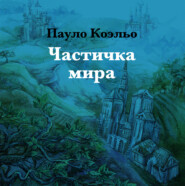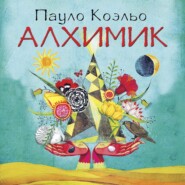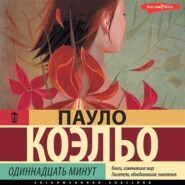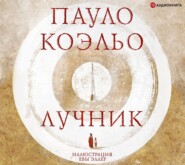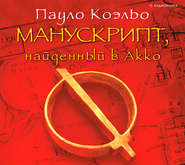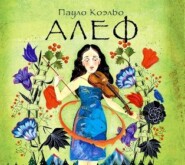По всем вопросам обращайтесь на: info@litportal.ru
(©) 2003-2024.
✖
The Witch of Portobello
Автор
Год написания книги
2018
Настройки чтения
Размер шрифта
Высота строк
Поля
The worst thing is that if it hadn’t been for her compulsive exhibitionism, everything we began together could have worked out really well. Had she behaved more discreetly, we would now be fulfilling the mission with which we were entrusted. But she couldn’t control herself; she thought she was the mistress of the truth, capable of overcoming all barriers merely by using her powers of seduction.
And the result? I was left alone. And I can’t leave the work half-finished – I’ll have to continue to the end, even though sometimes I feel very weak and often dispirited.
I’m not surprised that her life ended as it did: she was always flirting with danger. They say that extroverts are unhappier than introverts, and have to compensate for this by constantly proving to themselves how happy and contented and at ease with life they are. In her case, at least, this is absolutely true.
Athena was conscious of her own charisma, and she made all those who loved her suffer.
Including me.
Deidre O’Neill, 37, doctor, known as Edda (#ulink_eafff51f-8f2c-5ad5-84a7-436cb4599358)
If a man we don’t know phones us up one day and talks a little, makes no suggestions, says nothing special, but nevertheless pays us the kind of attention we rarely receive, we’re quite capable of going to bed with him that same night, feeling relatively in love. That’s what we women are like, and there’s nothing wrong with that – it’s the nature of the female to open herself to love easily.
It was this same love that opened me up to my first encounter with the Mother when I was nineteen. Athena was the same age the first time she went into a trance while dancing. But that’s the only thing we had in common – the age of our initiation.
In every other aspect, we were totally and profoundly different, especially in the way we dealt with other people. As her teacher, I always did my best to help her in her inner search. As her friend – although I’m not sure my feelings of friendship were reciprocated – I tried to alert her to the fact that the world wasn’t ready for the kind of transformations she wanted to provoke. I remember spending a few sleepless nights before deciding to allow her to act with total freedom and follow the demands of her heart.
Her greatest problem was that she was a woman of the twenty-second century living in the twenty-first, and making no secret of the fact either. Did she pay a price? She certainly did. But she would have paid a still higher price if she had repressed her true exuberant self. She would have been bitter and frustrated, always concerned about ‘what other people might think’, always saying ‘I’ll just sort these things out, then I’ll devote myself to my dream’, always complaining ‘that the conditions are never quite right’.
Everyone’s looking for the perfect teacher, but although their teachings might be divine, teachers are all too human, and that’s something people find hard to accept. Don’t confuse the teacher with the lesson, the ritual with the ecstasy, the transmitter of the symbol with the symbol itself. The Tradition is linked to our encounter with the forces of life and not with the people who bring this about. But we are weak: we ask the Mother to send us guides, and all she sends are signs to the road we need to follow.
Pity those who seek for shepherds, instead of longing for freedom! An encounter with the superior energy is open to anyone, but remains far from those who shift responsibility onto others. Our time on this Earth is sacred, and we should celebrate every moment.
The importance of this has been completely forgotten: even religious holidays have been transformed into opportunities to go to the beach or the park or skiing. There are no more rituals. Ordinary actions can no longer be transformed into manifestations of the sacred. We cook and complain that it’s a waste of time, when we should be pouring our love into making that food. We work and believe it’s a divine curse, when we should be using our skills to bring pleasure and to spread the energy of the Mother.
Athena brought to the surface the immensely rich world we all carry in our souls, without realising that people aren’t yet ready to accept their own powers.
We women, when we’re searching for a meaning to our lives or for the path of knowledge, always identify with one of four classic archetypes.
The Virgin (and I’m not speaking here of a sexual virgin) is the one whose search springs from her complete independence, and everything she learns is the fruit of her ability to face challenges alone.
The Martyr finds her way to self-knowledge through pain, surrender and suffering.
The Saint finds her true reason for living in unconditional love and in her ability to give without asking anything in return.
Finally, the Witch justifies her existence by going in search of complete and limitless pleasure.
Normally, a woman has to choose from one of these traditional feminine archetypes, but Athena was all four at once.
Obviously we can justify her behaviour, alleging that all those who enter a state of trance or ecstasy lose contact with reality. That’s not true: the physical world and the spiritual world are the same thing. We can see the Divine in each speck of dust, but that doesn’t stop us wiping it away with a wet sponge. The Divine doesn’t disappear; it’s transformed into the clean surface.
Athena should have been more careful. When I reflect upon the life and death of my pupil, it seems to me that I had better change the way I behave too.
Lella Zainab, 64, numerologist (#ulink_abe6acef-32b3-5fc4-a6d5-601942505a1e)
A thena? What an interesting name! Let’s see…her Maximum number is nine. Optimistic, sociable, likely to be noticed in a crowd. People might go to her in search of understanding, compassion, generosity, and for precisely that reason she should be careful, because that tendency to popularity could go to her head and she’ll end up losing more than she gains. She should also watch her tongue, because she tends to speak more than common sense dictates.
As for her Minimum number eleven, I sense that she longs for some leadership position. She has an interest in mystical subjects and through these tries to bring harmony to those around her.
However, this is in direct conflict with the number nine, which is the sum of the day, month and year of her birth reduced to a single figure: she’ll always be subject to envy, sadness, introversion and impulsive decisions. She must be careful not to let herself be affected by negative vibrations: excessive ambition, intolerance, abuse of power, extravagance.
Because of that conflict, I suggest she take up some career that doesn’t involve emotional contact with people, like computing or engineering.
Oh, she’s dead? I’m sorry. So what did she do?
What did Athena do? She did a little of everything, but, if I had to summarise her life, I’d say: she was a priestess who understood the forces of nature. Or, rather, she was someone who, by the simple fact of having little to lose or to hope for in life, took greater risks than other people and ended up being transformed into the forces she thought she mastered.
She was a supermarket checkout girl, a bank employee, a property dealer, and in each of these positions she always revealed the priestess within. I lived with her for eight years, and I owed her this: to recover her memory, her identity.
The most difficult thing in collecting together these statements was persuading people to let me use their real names. Some said they didn’t want to be involved in this kind of story; others tried to conceal their opinions and feelings. I explained that my real intention was to help all those involved to understand her better, and that no reader would believe in anonymous statements.
They finally agreed because they all believed that they knew the unique and definitive version of any event, however insignificant. During the recordings, I saw that things are never absolute; they depend on each individual’s perceptions. And the best way to know who we are is often to find out how others see us.
This doesn’t mean that we should do what others expect us to do, but it helps us to understand ourselves better. I owed it to Athena to recover her story, to write her myth.
Samira R. Khalil, 57, housewife, Athena’s mother (#ulink_b05eea2e-056d-53bc-877a-f44d65dfa024)
Please, don’t call her Athena. Her real name is Sherine. Sherine Khalil, our much-loved, much-wanted daughter, whom both my husband and I wish we had engendered.
Life, however, had other plans – when fate is very generous with us, there is always a well into which all our dreams can tumble.
We lived in Beirut in the days when everyone considered it the most beautiful city in the Middle East. My husband was a successful industrialist, we married for love, we travelled to Europe every year, we had friends, we were invited to all the important social events, and, once, the President of the United States himself visited my house. Imagine that! Three unforgettable days, during two of which the American secret service scoured every corner of our house (they’d been in the area for more than a month already, taking up strategic positions, renting apartments, disguising themselves as beggars or young lovers). And for one day, or, rather, two hours, we partied. I’ll never forget the look of envy in our friends’ eyes, and the excitement of having our photo taken alongside the most powerful man on the planet.
We had it all, apart from the one thing we wanted most – a child. And so we had nothing.
We tried everything: we made vows and promises, went to places where miracles were guaranteed, we consulted doctors, witchdoctors, took remedies and drank elixirs and magic potions. I had artificial insemination twice and lost the baby both times. On the second occasion, I also lost my left ovary, and after that no doctor was prepared to risk such a venture again.
That was when one of the many friends who knew of our plight suggested the one possible solution: adoption. He said he had contacts in Romania, and that the process wouldn’t take long.
A month later, we got on a plane. Our friend had important business dealings with the dictator who ruled the country at the time, and whose name I now forget (Editor’s note: Nicolae Ceaușescu), and so we managed to avoid the bureaucratic red tape and went straight to an adoption centre in Sibiu, in Transylvania. There we were greeted with coffee, cigarettes, mineral water, and with the paperwork signed and sealed, all we had to do was choose a child.
They took us to a very cold nursery, and I couldn’t imagine how they could leave those poor children in such a place. My first instinct was to adopt them all, to carry them off to Lebanon where there was sun and freedom, but obviously that was a crazy idea. We walked up and down between the cots, listening to the children crying, terrified by the magnitude of the decision we were about to take.
For more than an hour, neither I nor my husband spoke a word. We went out, drank coffee, smoked and then went back in again – and this happened several times. I noticed that the woman in charge of adoptions was growing impatient; she wanted an immediate decision. At that moment, following an instinct I would dare to describe as maternal – as if I’d found a child who should have been mine in this incarnation, but who had come into the world in another woman’s womb – I pointed to one particular baby girl.
The woman advised us to think again. And she’d been so impatient for us to make a decision! But I was sure.
Nevertheless – trying not to hurt my feelings (she thought we had contacts in the upper echelons of the Romanian government) – she whispered to me, so that my husband wouldn’t hear: ‘I know it won’t work out. She’s the daughter of a gipsy.’
I retorted that culture isn’t something that’s transmitted through the genes. The child, who was barely three months old, would be our daughter, brought up according to our customs. She would go to our church, visit our beaches, read books in French, study at the American School in Beirut. Besides, I knew nothing about gipsy culture – and I still know nothing. I only know that they travel a lot, don’t wash very often, aren’t to be trusted, and wear earrings. Legend has it that they kidnap children and carry them off in their caravans, but here, exactly the opposite was happening; they had left a child behind for me to take care of.
The woman tried again to dissuade me, but I was already signing the papers and asking my husband to do the same. On the flight back to Beirut, the world seemed different: God had given me a reason for living, working and fighting in this vale of tears. We now had a child to justify all our efforts.
Sherine grew in wisdom and beauty – I expect all parents say that, but I really do think she was an exceptional child. One afternoon, when she was five, one of my brothers said that, if, in the future, she wanted to work abroad, her name would always betray her origins, and he suggested changing it to one that gave nothing away, like Athena, for example. Now, of course, I know that Athena refers not only to the capital of Greece, but that it is also the name of the Greek goddess of wisdom, intelligence and war.
Perhaps my brother knew not only that, but was aware, too, of the problems an Arab name might bring in the future, for he was very involved in politics, as were all our family, and wanted to protect his niece from the black clouds which he, and only he, could see on the horizon. Most surprising of all was that Sherine liked the sound of the word. That same afternoon, she began referring to herself as Athena and no one could persuade her to do otherwise. To please her, we adopted the nickname too, thinking that it would be a passing fancy.
Can a name affect a person’s life? Time passed, and the name stuck.







